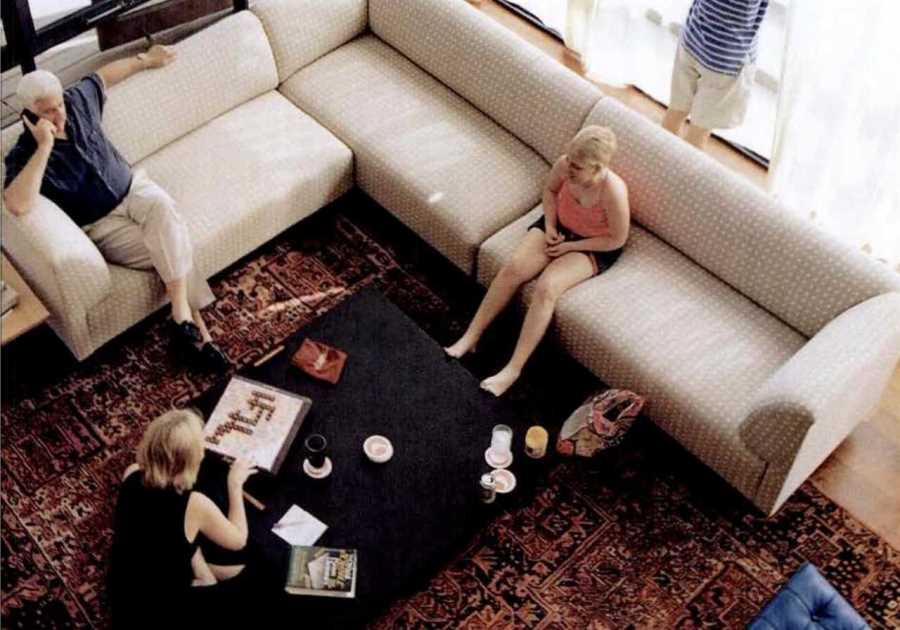For many couples without children, their schedules look wide open from the outside. But the reality is that burnout feels different when your time off is not reserved for family obligations yet still gets swallowed by work demands, social expectations, or constant availability. Without built in boundaries like school events, childcare needs, or family-centric weekends, it becomes easier for employers and others to assume your time is always flexible. That invisible pressure creates a unique kind of exhaustion that builds slowly but hits hard. When your personal life lacks natural stopping points, burnout creeps into every corner of your routine.
The Pressure to Always Be Available Hits Harder
One of the biggest reasons burnout feels different for couples without family responsibilities is that others assume they can stretch themselves endlessly. Coworkers often ask for extra coverage, late meetings, or weekend shifts because they assume your schedule is “lighter.” This unfair expectation piles on stress while removing your sense of agency. Over time, it becomes difficult to protect your evenings, your weekends, or even your lunch breaks. Without intentional boundaries, burnout becomes a constant threat.
Social Invitations Replace Rest Instead of Supporting It
Many couples find that burnout feels different when their time off is filled with social gatherings rather than restorative downtime. Friends may assume you have endless capacity to attend events because you do not have built in family commitments. Saying yes too often leads to overstimulation and exhaustion. And saying no can create guilt or social friction. This dynamic makes it hard to prioritize genuine rest.
Without Family Anchors, Work Consumes More Space
For many parents, family routines naturally reduce work hours and create daily shutdown moments. When those anchors do not exist, burnout feels different because work can easily fill every gap of your schedule. This leads to longer days, fewer true breaks, and a constant sense of being halfway online. Couples may not notice the creep until they feel drained, unmotivated, or emotionally flat. Work becomes a default activity rather than a chosen one.
Vacations Feel Optional But Should Not Be
Many couples discover that burnout feels different when they postpone vacations simply because they can. Without kid related school schedules or mandatory seasonal travel, taking time off becomes something they will “eventually” get to. That flexibility turns into a trap. Partners may save more PTO than they use, or skip breaks during busy seasons. Over time, the lack of structured breaks intensifies emotional fatigue.
Productivity Culture Targets Couples Without Kids
Society often treats couples without children as the ones who should take on extra shifts, relocations, travel, or demanding projects. This creates a cycle where exhaustion takes on a different shape because it comes with an unspoken expectation to outperform everyone else. The pressure to say yes becomes a financial and professional survival strategy. But consistently taking on more increases the risk of mental and emotional strain.
Household Tasks Still Add Up Faster Than Expected
Even without children, running a household requires energy, planning, and time. When burnout begins, it hits differently because the everyday things like cooking, cleaning, errands, and budgeting feel heavier. Without a built-in team of helpers or mandated family schedules, chores become another place where exhaustion shows up. Couples often underestimate how much mental energy domestic life really consumes.
Couples May Cope Differently, Which Adds Strain
When two adults are exhausted at the same time, the experience of burnout changes because there is no natural buffer. One partner may want more social engagement while the other wants isolation. One may lean into work while the other shuts down. These mismatched coping styles create tension that accelerates burnout. Without kids anchoring family routines, couples must communicate proactively to stay aligned.
Rest Requires Intentional Planning Instead of Necessity
Parents often structure life around cycles of school, meals, and bedtime routines. Couples without children must build their own rhythms from scratch. That is why burnout feels different when your downtime is not automatically scheduled by external demands. Rest requires planning, intention, and sometimes negotiation. Without that structure, people often default to screens, extra work, or late nights, which deepens fatigue.
The Emotional Impact Sneaks Up Quietly
Because the signs unfold gradually, the experience of burnout is different when there are fewer obvious milestones to signal that something is wrong. Parents may notice burnout when it affects their kids, routines, or school dynamics. Couples without children notice it in subtler ways, such as irritability, decreased motivation, or feeling disconnected from hobbies. The emotional weariness builds silently until it becomes overwhelming.
Creating Rest When Burnout Feels Different and Life Lacks Natural Boundaries
When burnout shows up in a household without family driven routines, managing it requires building boundaries that do not naturally exist. Couples can create shared rituals like device free evenings, recurring date nights, early shutdown routines, or planned weekends of rest. Setting intentional limits protects mental health and keeps burnout from controlling the household. The most important step is recognizing that time off is not optional but essential.
How do you and your partner protect your downtime when burnout creeps in? Share your strategies in the comments.
What to Read Next…
The Dangerous Myth of “We’ll Be Fine Because We Both Work”
Why No-Kid Couples Are Facing Higher Stress Levels Than Parents
How Overworking Together Becomes the Most Common Couple Risk
Why Couples Who “Work to Play” End Up With No Time to Live
10 Signs Career Obsession Is Quietly Destroying Your Relationship
------------Read More
By: Catherine Reed
Title: How Burnout Feels Different When You Have No Time Off for Family Life
Sourced From: www.dinksfinance.com/2025/11/how-burnout-feels-different-when-you-have-no-time-off-for-family-life/
Published Date: Wed, 26 Nov 2025 14:30:21 +0000
Did you miss our previous article...
https://trendinginbusiness.business/finance/dance-studio-accounting-tips
.png)





